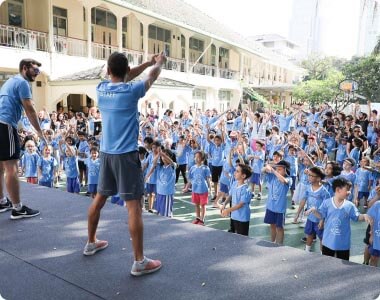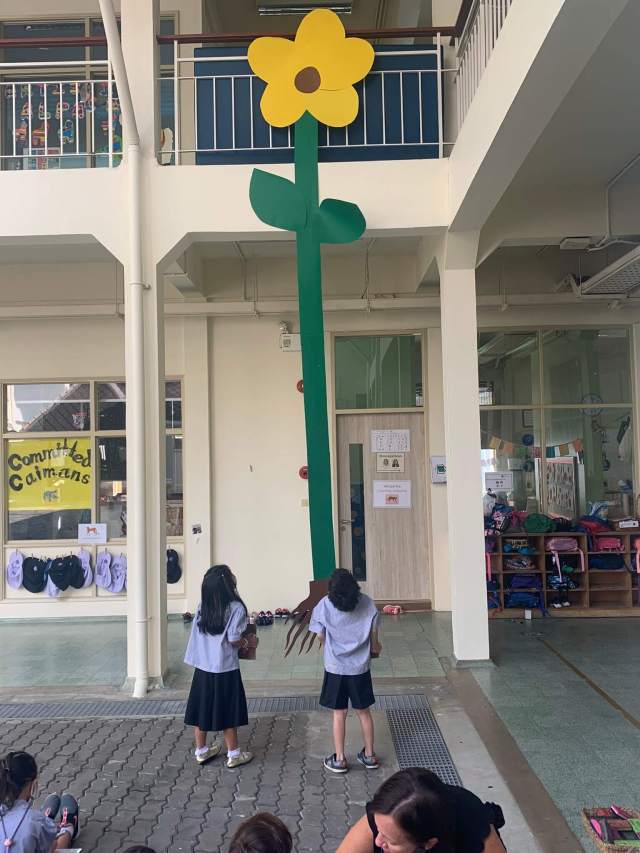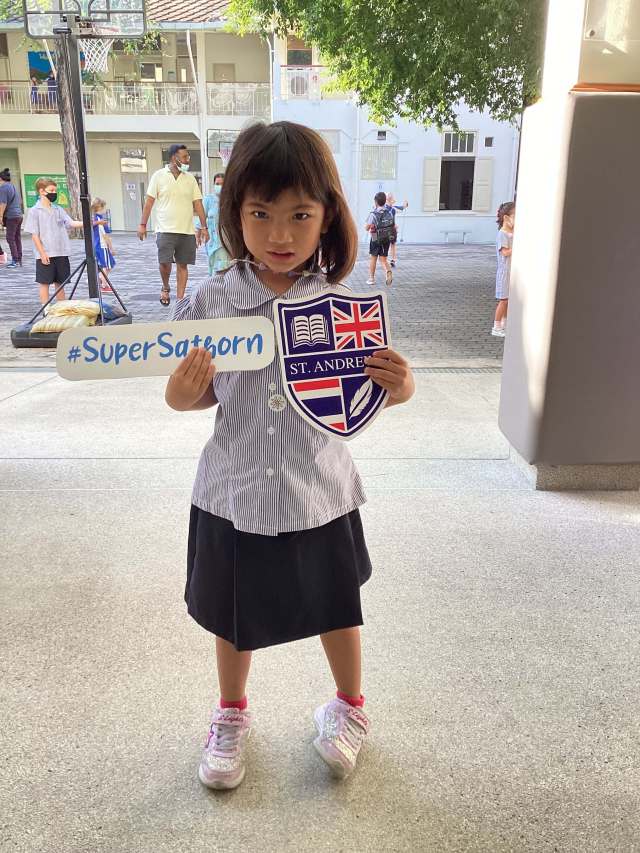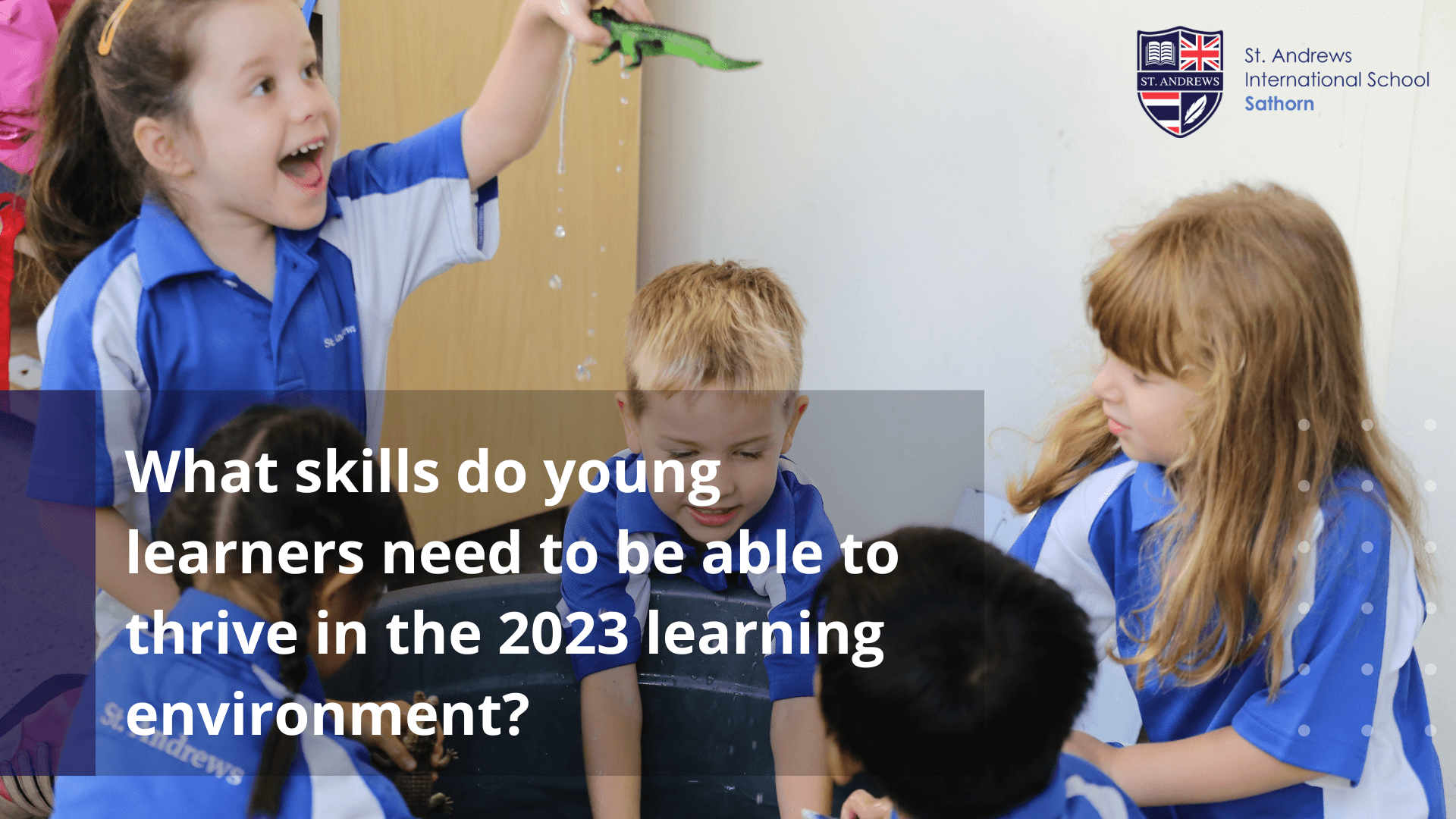What skills do young learners need to be able to thrive in the 2023 learning environment?
A version of this question is something that parents and educators of young children ask themselves everyday. Should we be prioritising; mark making skills, clarity of speech or ball handling skills. It can often feel like there isn’t enough time in the day to cover all the skills we would like young learners to master. So how do we ensure that we are setting up children for success?
At St. Andrews, Sathorn we have put a lot of thought into answering this question. Two important skills that children in the Early Years of schooling need are Independence and Problem Solving Skills.

Promoting Independence in Early Years
Children that are given the space to develop and foster their independence skills will ultimately feel more confident and secure, be more willing to take appropriate risks and be better prepared for new challenges and situations. One of the easiest ways of promoting independence is to establish clear routines, children that know what is expected of them are able to function more independently in the school and home environment. Young children often learn by repetition, completing the same tasks again and again. An example of this is encouraging very young children to be involved in taking care of their belongings, very young children that have completed these routines at home are then able to use these skills in the school environment. They know to observe other children to learn about routines and expectations. When independence is understood in relation to others, it ensures that children begin to understand the responsibilities of being a valued member of the community.
Allowing children to complete real world tasks and responsibilities results in a significant sense of achievement. The process of child development is in essence the process of becoming more independent, as children move through each stage they are able to do more for themselves. However, children are often told they can’t do something because they are too young . When children are allowed to take appropriate risks it leads to accelerated learning. With well thought out and appropriate real word tasks children can feel a greater sense of autonomy. Children love to engage in cooking activities, gardening or be included in household chores. It could be as simple as ordering for themselves in a restaurant or being included in grocery shopping.

Problem-Solving Skills
Solving problems involves reflecting and thinking. Some problems involve using only one skill, others involve the use of a range of skills. Children that are skilled problem solvers, drive their own learning, develop effective social skills and are able to adapt to different situations. The school environment needs to promote a culture where it is more important to explore, experiment and take risks than to always have the correct answer. In order to become skilled problem solvers students need to be given the space and time to reach their own conclusions, the role of the adult is to help children talk through their thought process, not to jump in and solve the problem for them. Educators and parents can help children to understand how to solve problems by modelling their own problem solving process, verbalising their thinking and sharing the problems that arise throughout the day, encouraging children to be involved in solving the issues.
The problem could be as simple as how to fit items into their school bag. To solve the problem the child needs to use their spatial awareness, knowledge of shape, follow a sequence, and fine motor skills to operate the zipper. If an adult were to ‘jump in’ and solve the problem too early it doesn’t allow the child the opportunity to become a real world problem solver.

Here at St. Andrews Sathorn we know the importance of children becoming independent and skilled problem solvers. We are mindful that children need to be given the opportunity, time and space to develop these skills from a young age. Educators at St. Andrews are highly skilled at providing challenges for children, appropriate risk taking behaviour is encouraged. The timetable is designed to ensure that extended, uninterrupted learning through play is prioritised. The learning environments promote independence and ensure that children are given many opportunities for problem solving.
Miss Mia Owens
Early Years Coordinator and Reception Teacher
Link to other Early Years Articles:
Parent Case Study: https://www.cognita.com/parents/case-study-ishcmc-early-years/
Cognita Leads the way with Early Years Education: https://www.cognita.com/cognita-leads-way-early-years-education-singapore/


